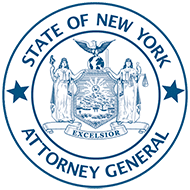Multistate Coalition Condemns Recent Federal Actions Targeting Efforts to Address Disproportionate Community Environmental Burdens
NEW YORK — New York Attorney General Letitia James today co-led a multistate coalition of 13 other attorneys general in issuing guidance affirming the necessity and legality of environmental justice initiatives. In the guidance, Attorney General James and the coalition reinforce that despite the federal government’s recent efforts to brand these critical efforts as illegal, public and private entities can still lawfully engage in environmental justice work to ensure a healthy environment for all people to live, play, work, learn, and worship.
“Communities of color, low-income, and rural communities are on the frontlines of the climate crisis, facing our nation’s greatest environmental threats,” said Attorney General James. “It should not be controversial to recognize these disproportionate burdens, or to fight to improve the health and well-being of our most vulnerable communities. Our partners and advocates in the private and public sectors should know that environmental justice work remains legal and is more important now than ever before.”
The environmental justice movement was born from the nation’s civil, economic, labor, and immigrants’ rights movements and aims to ensure that every person has equal access to clean air and water, safe and healthy food, a sustainable and stable environment, and protection from the impacts of the climate crisis. Despite over 40 years of progress since the founding of the environmental justice movement, the principles and practices that the federal administration is attempting to stop remain both necessary and urgent. Racial segregation, redlining, and disinvestment have all laid the foundation for persistent environmental and public health disparities.
Evidence-based studies demonstrate that communities of color, indigenous people and tribal nations, low-income, rural, and unincorporated communities, people with disabilities, and non-English speaking communities routinely face disproportionate environmental and health burdens. From lead poisoning and pollution-related asthma in children, to the presence of waste dumping and contaminated sites and excessive car and truck traffic, to extreme temperatures, flooding, and wildfires, over-burdened communities face formidable, continuing barriers to their health and well-being.
These challenges are exacerbated by the climate crisis, which is causing environmental dangers that lead to greater instability, economic hardship, and shortened life spans. Environmental justice initiatives work to overcome this division, developing solutions to persistent harms and advancing public health, safety, well-being, and prosperity across communities.
Attorney General James and the coalition contend that since day one, the federal administration has attempted to eliminate environmental justice, a longstanding federal policy, via executive orders and memoranda. The administration illegally terminated environmental and climate justice programs and grants, discontinued environmental enforcement actions without justification, and called for frivolous legal challenges to state environmental justice and climate laws.
The attorneys general affirm that the president cannot change or dismantle laws passed by Congress, nor can his executive orders or agency memoranda change the protections afforded by the U.S. Constitution and other federal and state laws. In fact, civil rights and environmental laws support public and private efforts to advance environmental justice, as does the U.S. Constitution.
The guidance is directed to the state and local governments, nonprofit organizations, businesses, and community groups engaged in justice-oriented efforts to equitably restore and protect environmental and public health. Attorney General James and the coalition stand ready to implement and enforce the nation’s laws to advance environmental justice and will continue working in collaboration with communities and organizations to support and defend these efforts across the country.
Joining Attorney General James in issuing this guidance, which was co-led with the attorneys general of Massachusetts and California, are the attorneys general of Colorado, Connecticut, Delaware, Illinois, Maryland, Minnesota, Rhode Island, Vermont, Washington, Wisconsin, and the District of Columbia.



